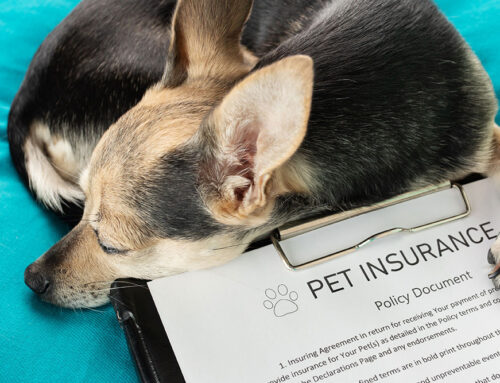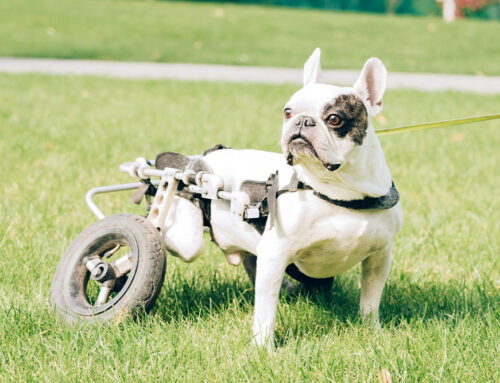Rising Austin temperatures, festive decor, and barbecue-scented air let us know that summer has arrived. Family gatherings and road trips are in full swing, as many people take advantage of time off from work and school. Your four-legged companions are likely also enjoying extra family time, so you may be tempted to include them in all your summer adventures. However, a pet’s curiosity can be dangerous, and cause injury, or sickness from an accidental toxin ingestion. As the July Fourth holiday quickly approaches, our Star of Texas Veterinary Hospital team wants to ensure you and your pet have a fun-filled and safe July Fourth, so we provide these four pet safety tips.
#1: Ensure your pet is prepared before the party
July Fourth festivities with friends and family require preparation to ensure that guests are well fed and enjoy the celebration. Equally vital is preparing your pet for the party. Loud noises, strange smells, bright lights, and new people can be stressful for pets, who may seek safety in dangerous places. Many pets are easily frightened or spooked during loud celebrations, and they may run away, or become lost. The American Humane Association estimates that approximately one out of three pets will go missing in their lifetime. In fact, July 5 is one of the busiest shelter days of the year, because many pets go missing from a fireworks fear response.
Unfortunately, most lost pets will not be returned home, because they do not have proper identification. However, microchipping, which is the safest, most effective way to ensure a reunion with your pet should they go missing this July Fourth, is easily available. A microchip is your pet’s only permanent, unalterable form of identification, and can easily be placed during a wellness veterinary examination with your Star of Texas Veterinary Hospital veterinarian. Always keep the information registered with your pet’s microchip up to date, and always place a secondary identification tag or collar on your pet, including indoor pets. Other preparation safety tips include:
- Ensuring you have a current photo of your pet available
- Contacting your veterinarian and scheduling a check-the-chip appointment, to ensure the chip is properly functioning
- Leaving your pet indoors during fireworks celebrations, to decrease their chances of becoming spooked
- Ensuring your yard fences and gates are secure
- Leaving door signs during party celebrations to remind guests that your pet is present
#2: Create barbecue boundaries around your pet
The tempting smells, sizzling meats, and sweet treats will likely cause your pet to drool in anticipation of sampling the celebratory feast. However, barbecue cooking and pets is a dangerous combination, because pets may attempt to help themselves from the hot grill. According to the National Fire Prevention Association, pets should be kept more than three feet from grills, because the dangerous grilling flames and heat can burn paws and singe whiskers or tongues. Also, never leave an active grill unattended.
You may be tempted to include your pet in the family meal, but sharing your plate can lead to accidental poisoning. Many popular July Fourth foods are toxic to pets, and cause gastrointestinal (GI) problems, including pancreatitis, a potentially deadly inflammatory condition. Immediately contact our veterinarian, or the ASPCA Animal Poison Control Center, if your pet accidently ingests any of the following pet-toxic foods:
- Raw yeast dough
- Onions
- Raisins
- Grapes
- Sugar-free foods containing xylitol
- Chocolate
- Corn cobs
- Raw meats or bones
- Alcoholic drinks or desserts
#3: Keep your pet cool for the summer
The steamy summer Texas heat and humidity can be difficult for humans—and pets—to handle. Generally, if it is too hot outside for you, it is too hot for your pet. Many summer celebrations take place outdoors, and your pets naturally want to be included. However, pets, especially dogs, are at risk of heat exhaustion, or heatstroke, which occurs when your pet’s body temperature rises above the normal 100- to 102-5 degree range when they are exposed to a hot environment. All pets have only a few sweat glands, and primarily cool themselves by panting, but brachycephalic breeds such as bulldogs and pugs are at an increased heat stroke risk, because their shorter oral and nasal cavities cool less efficiently. Additionally, overweight pets, senior pets, and pets who have underlying heart and lung problems also have an increased risk.
Limit your pet’s exposure to extreme heat, and ensure they have shade, water, and a cool place to retreat. Pets who suffer from heat exhaustion or heatstroke also are at risk for organ failure and bleeding problems. Immediately bring your pet for veterinary care if they are showing heat exhaustion or heatstroke signs, which may include:
- Excessive panting
- Difficulty breathing
- Excessive drooling
- Anxious behavior
- Bright red gums or tongue
- Incoordination
- Vomiting
- Diarrhea, which may contain blood
- Bruising without apparent trauma
- Collapse
- Muscle tremors
- Seizures
#4: Check your yard before allowing your pet outside after celebrations

The post-party cleanup may feel like a chore after a night of sparkling lights and tasty treats, but inspecting your yard and home for any post July Fourth pet hazards is essential. Neighborhood fireworks debris can easily migrate to your yard, which can lead to injured investigative noses and paws. Additionally, ensure that all garbage can lids are tightly closed to prevent your pet from indulging in a food scrap buffet.
Our Star of Texas Veterinary Hospital team wishes you and your family a safe and happy July Fourth celebration. However, should your pet get into any holiday mischief, or to schedule their pre-celebration check-the-chip appointment, call our office as soon as possible.






